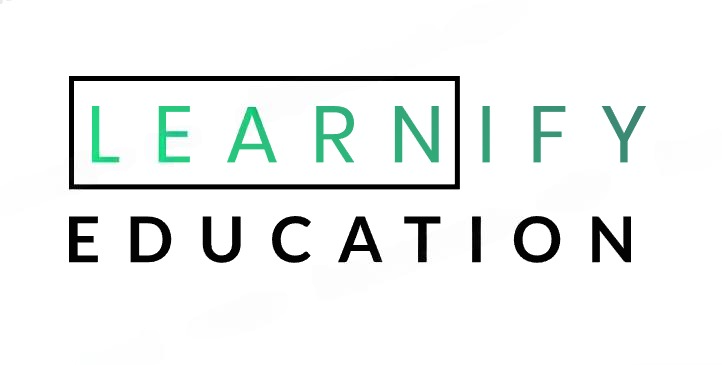











Compare India's leading
universities on a single platform
within two minutes.
- Online MBA for job professionals 100 + Universities
- 30X comparison factors
- Free expert consultation
- Quick Loan facility
- Post Admission Support
- Learnify Exclusive Community
- Job + Internship Portal
The Importance of Value Education: Process Of Value Education
- No-Cost EMI From ₹5100/-
- Subsidy Available upto ₹20,000/-

Understanding the Importance of Value Education

Core Values Instilled
At its core, value education aims to instill fundamental values such as respect, integrity, responsibility, and empathy. Respect involves acknowledging and valuing others’ perspectives and rights, while integrity emphasizes honesty and strong ethical principles. Responsibility teaches individuals to be accountable for their actions, and empathy fosters a deep understanding and compassion for others’ experiences.
Guiding Ethical Decisions
The importance of value education is underscored by its role in guiding ethical decision-making. By providing a moral framework, value education helps individuals navigate complex situations and make choices that positively impact both themselves and society.
Addressing Moral Challenges
In an era where ethical dilemmas are increasingly prevalent, value education provides essential tools for addressing these challenges. It equips individuals with the ability to tackle moral issues with clarity and resolve, highlighting its critical role in personal and societal ethics.
The Role of Value Education in Schools

Schools play a pivotal role in shaping the character and values of students. Integrating value education into the curriculum is crucial for building a solid ethical foundation.
Character Formation
During the formative years, schools are instrumental in molding students’ character. By incorporating value education into the school curriculum, institutions help students develop a strong sense of ethics and morality. This early intervention is essential for fostering responsible and principled individuals.
Creating Responsible Citizens
Role of Educators
Educators play a vital role in this process. By exemplifying the values they teach and guiding students in ethical behavior, teachers help reinforce the principles of value education. Their influence extends beyond the classroom, impacting students’ long-term moral development.
The Growing Need for Value Education
Addressing Social and Environmental Issues
As global issues such as social inequality and environmental degradation become more prominent, value education helps individuals develop a sense of responsibility. It encourages awareness and action toward creating positive change, emphasizing the need for ethical and responsible behavior.
Global Citizenship
Value education also promotes global citizenship. By fostering an understanding of diverse cultures and perspectives, it prepares individuals to address international ethical issues and contribute to a sustainable and equitable world.
Exploring Different Types of Value Education

Value education can be approached through various methods, each serving distinct purposes.
Formal Value Education
Formal value education is structured and delivered through the school curriculum. It involves planned lessons and programs designed to teach ethical principles and moral behavior systematically.
Informal Value Education
In contrast, informal value education occurs through everyday experiences and interactions. This type of education happens outside the classroom and includes learning from family, community activities, and personal experiences.
Comparative Analysis
Understanding these different types of value education helps appreciate how they contribute to holistic development. Both formal and informal approaches are essential for fostering a well-rounded personality.
Incorporating Moral Values in Education
Moral values are the cornerstone of value education, guiding behavior and decision-making.
Foundation for a Just Society
Teaching moral values is crucial for building a just and harmonious society. Values such as fairness, justice, and respect form the basis for a civil and equitable community, ensuring that individuals contribute positively to social cohesion.
Tools for Navigating Life’s Challenges
By embedding these values into education, individuals are equipped with the tools needed to handle life’s challenges with integrity and compassion. This preparation is vital for personal fulfillment and ethical decision-making.
The Process of Value Education: A Lifelong Journey
Value education is a continuous journey that extends beyond formal schooling.
Continuous Learning
Value education begins in childhood and continues throughout life. It involves both teaching and learning, with educators playing a crucial role in modeling and reinforcing values. This ongoing process ensures that individuals develop a strong ethical foundation that evolves with their experiences.
Beyond the Classroom
The process of value education is not confined to the classroom. It includes learning from various life experiences, community interactions, and personal reflections, highlighting its comprehensive and lifelong nature.
The Critical Importance of Value Education in Today’s World
Developing Global Citizenship
Value education fosters global citizenship by encouraging individuals to engage with and understand international issues. This awareness is crucial for addressing global challenges such as climate change and social justice.
Creating a Better Society
By promoting ethical behavior and social responsibility, value education contributes to building a better society. It helps create a more just, equitable, and sustainable world, aligning with broader goals of social progress and global harmony.
The Lasting Importance of Value Education in Life
The influence of value education extends beyond educational settings, impacting individuals throughout their lives.
Guiding Choices and Behavior
The values learned through education guide individuals’ choices and behaviors across various aspects of life. These values shape their personal and professional decisions, influencing interactions and overall life satisfaction.
Leading a Fulfilling Life
Ultimately, value education contributes to leading a fulfilling and morally grounded life. It provides a framework for making ethical decisions, fostering meaningful relationships, and achieving personal growth.
Key Value Education Topics to Explore
Topics to Consider
- Role in Society: Examining how value education shapes societal norms and behaviors.
- Impact on Personal Growth: Understanding how values influence personal development and success.
- Ethical Implications: Investigating the broader ethical implications of value education in different contexts.


